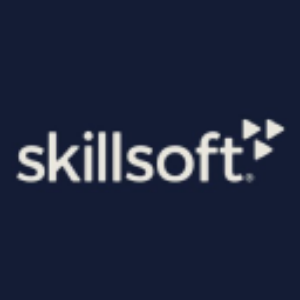Skillsoft Research Reveals Misalignment Between Organizations’ Strategic Goals and Workforce Skills Entering 2025
Less Than a Quarter of Employees Feel Fully Prepared to Handle Upcoming Work Challenges; Readiness Tied to Tailored Training and Coaching
Despite the World Economic Forum finding that
“Boosting efficiency, revenue, and customer satisfaction should undoubtedly be business priorities. However, to achieve these, leaders must champion the importance of skills development, integrating it into the core strategic objectives of the organization to ensure that workforce capabilities evolve in tandem with business needs,” said Ciara Harrington, Chief People Officer, Skillsoft. "By creating a strong foundation of talent through training and a consistent strategy communications plan, employees will be better prepared to adapt, innovate, and contribute to their organization’s long-term success."
From rapid technological advancements to a new
To feel more prepared, respondents are primarily seeking personalized, role-based training options, more frequent and updated training, and access to mentoring and coaching. Beyond preparedness, respondents also saw stronger relationships with colleagues, increased confidence in tackling new challenges, and enhanced creativity and problem-solving skills after training and upskilling.
"Access to training and new technologies nurtures continuous learning and adaptability, empowering employees to tackle future challenges,” Harrington continued. “An investment in talent is an investment in the future of your company and its competitive edge."
Clear communication of goals and priorities is essential for organizations to foster workforce confidence and eliminate uncertainty.
Only
-
Gen Z respondents expressed greater feelings of workplace dissatisfaction (
25% ) compared to other age groups. -
54% of respondents who are dissatisfied with their current roles are somewhat or extremely unsatisfied with company culture. -
A majority (
81% ) of respondents dissatisfied with their role believe their skills are misaligned with their organizations’ strategic priorities. -
Burnout and exhaustion (
39% ), decreased motivation/engagement (35% ), and overwhelming workload and responsibilities (35% ) were respondents' top work-related challenges over the past year. Investing in talent development can help build important time management skills while also providing another opportunity to engage and motivate the workforce.
The result of the
-
Respondents anticipate a positive impact on areas including employee development and career pathing (
71% ) and the use of AI tools in the workplace (69% ). -
Respondents anticipate a negative impact on areas including regulatory compliance requirements (
35% ) and employee morale and engagement (34% ). -
Respondents in management and leadership roles share similar sentiments about the expected impact of the
U.S. presidential election, though managers believe it will have the biggest negative impact on employee development and career pathing.
To learn more about the findings from Skillsoft’s research, visit here.
RESEARCH METHODOLOGY
Skillsoft’s research survey was conducted online from October to November 2024 through the Pollfish platform. The survey yielded 2,150 complete responses from full-time workers across various industries and roles in
ABOUT SKILLSOFT
Skillsoft (NYSE: SKIL) delivers transformative learning experiences that propel organizations and people to grow together. The Company partners with enterprise organizations and serves a global community of learners to prepare today’s employees for tomorrow’s economy. With Skillsoft, customers gain access to blended, multimodal learning experiences that do more than build skills, they grow a more capable, adaptive, and engaged workforce. Through a portfolio of best-in-class content, a platform that is personalized and connected to customer needs, world-class tech and a broad ecosystem of partners, Skillsoft drives continuous growth and performance for employees and their organizations by overcoming critical skill gaps and unlocking human potential.
View source version on businesswire.com: https://www.businesswire.com/news/home/20241212176288/en/
INVESTORS
Rich Walker
rich.walker@skillsoft.com
MEDIA
Cameron Martin
cameron.martin@skillsoft.com
Source: Skillsoft







